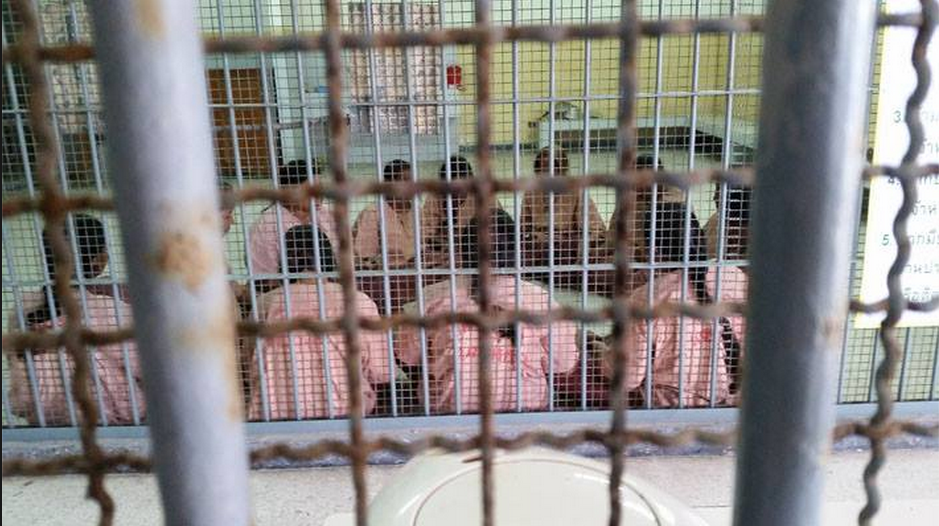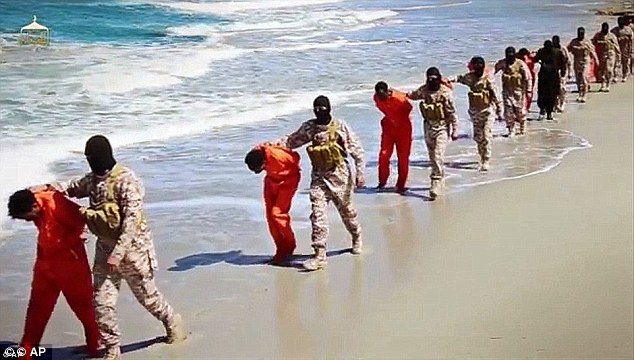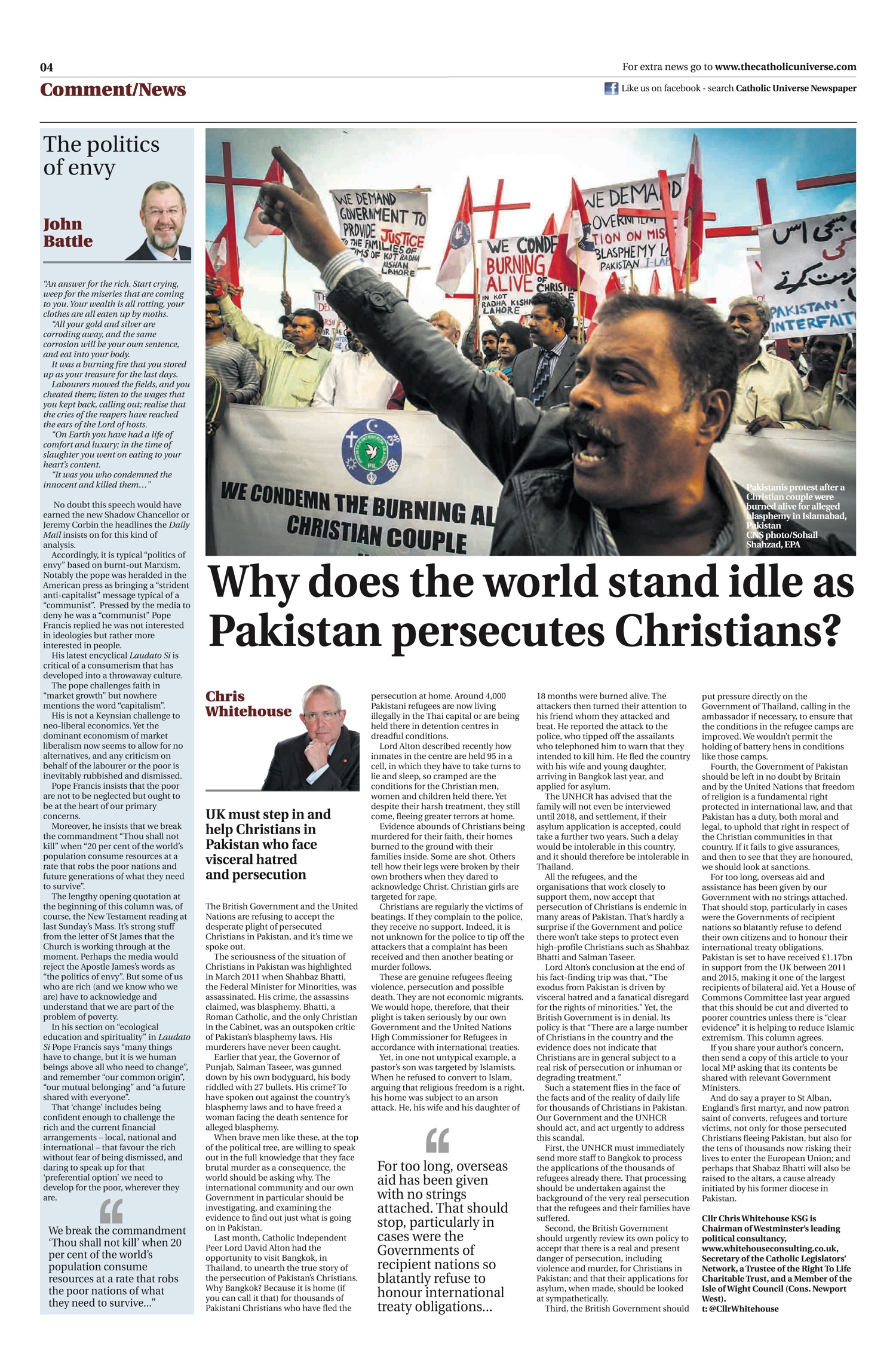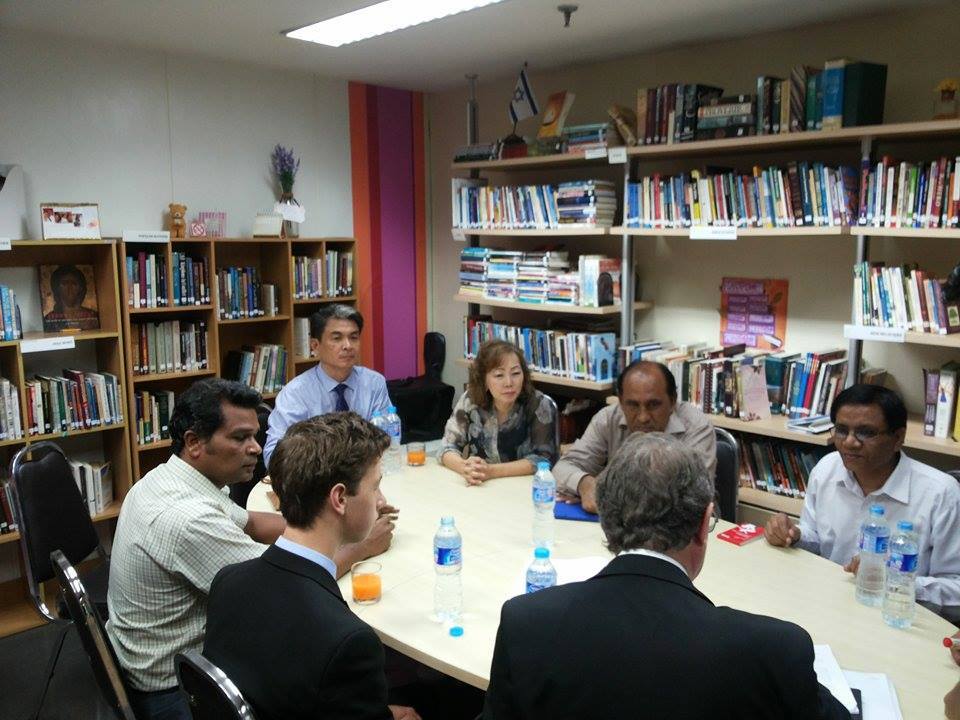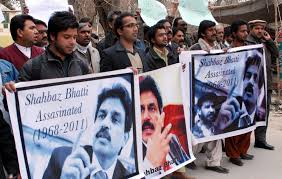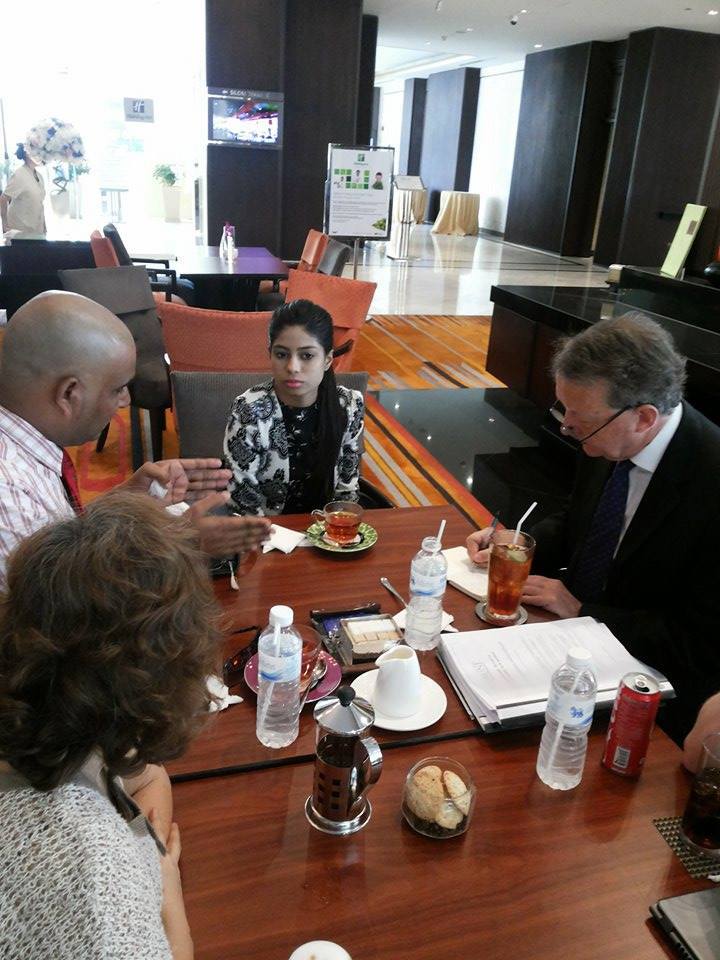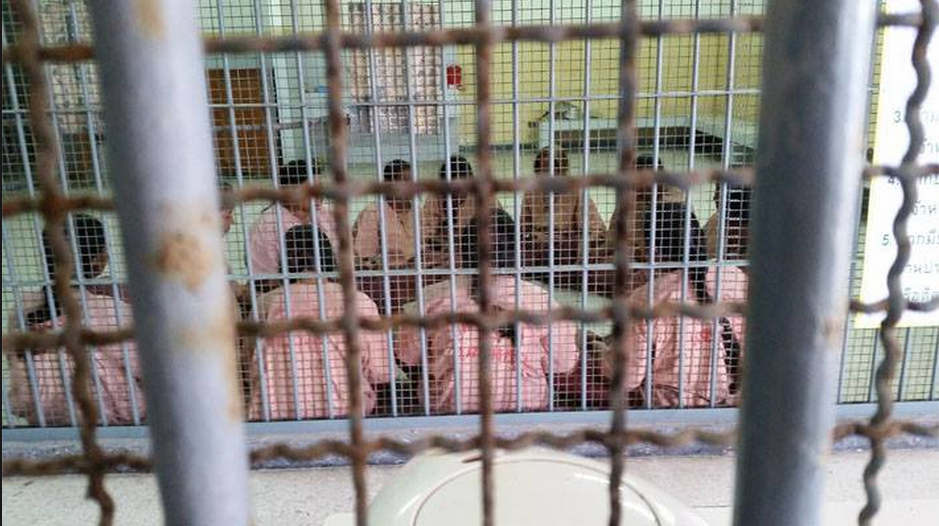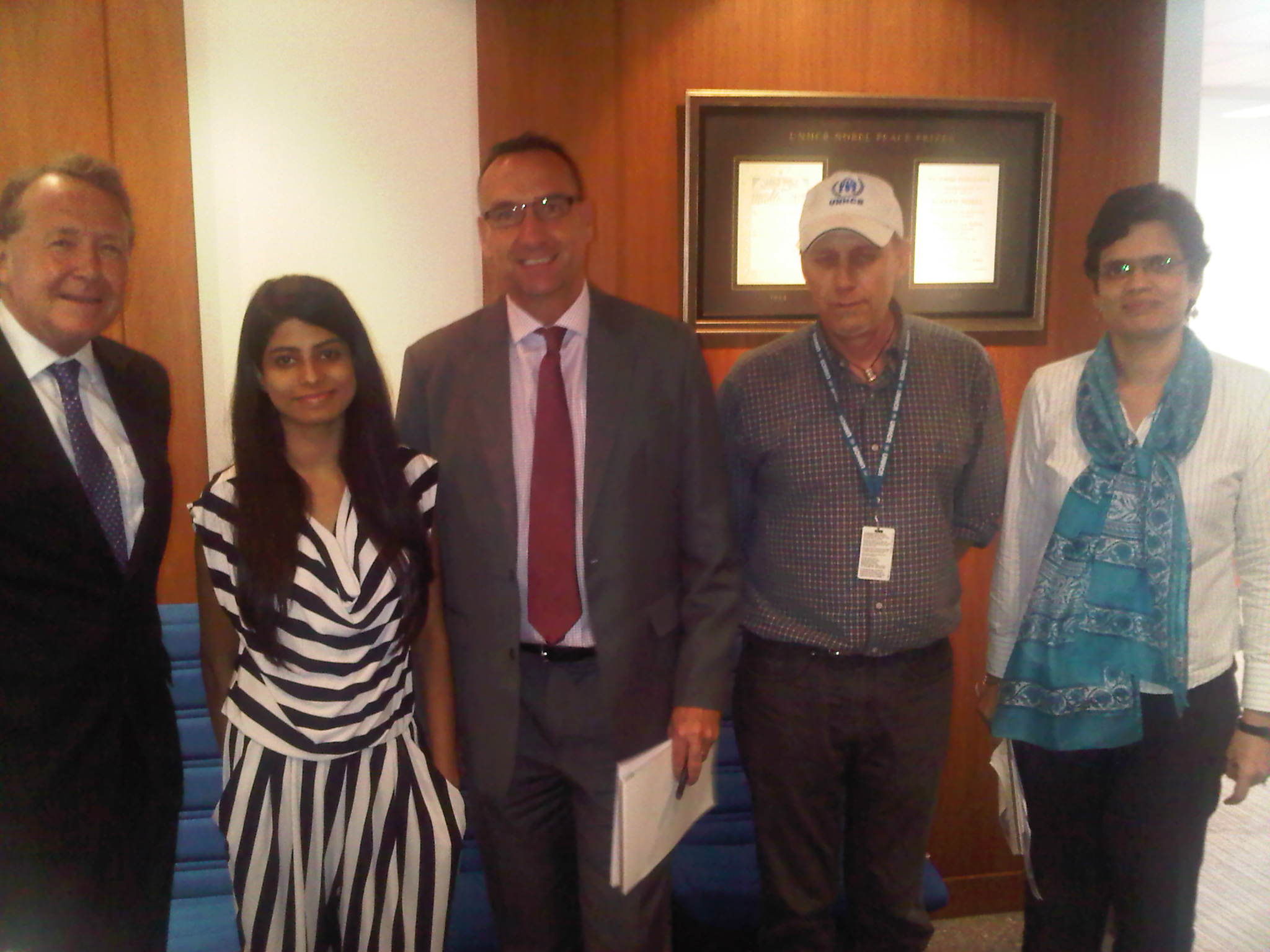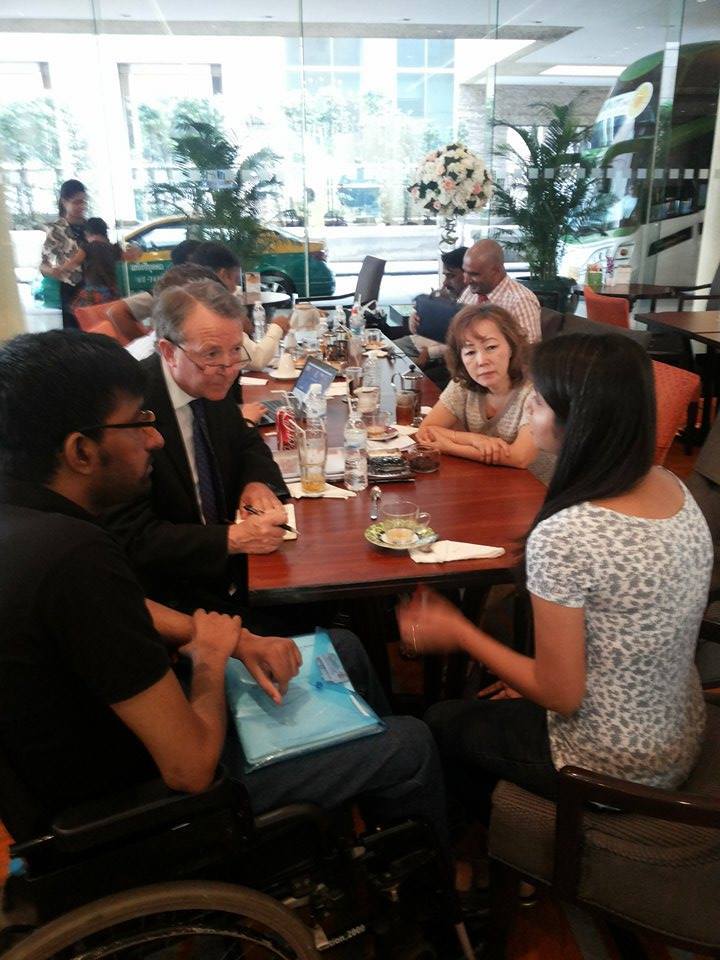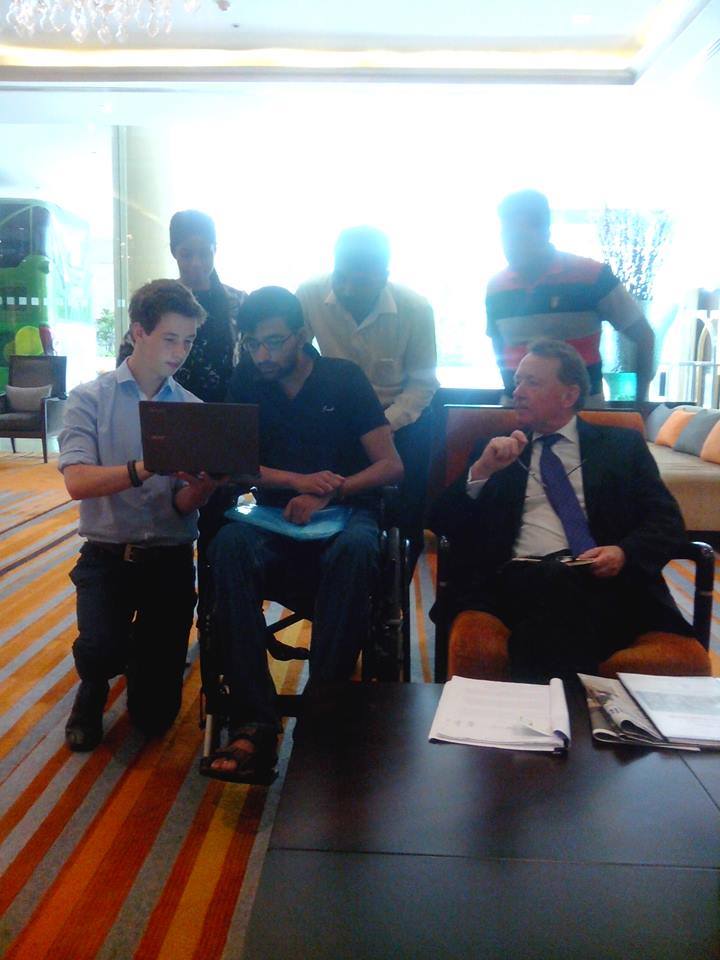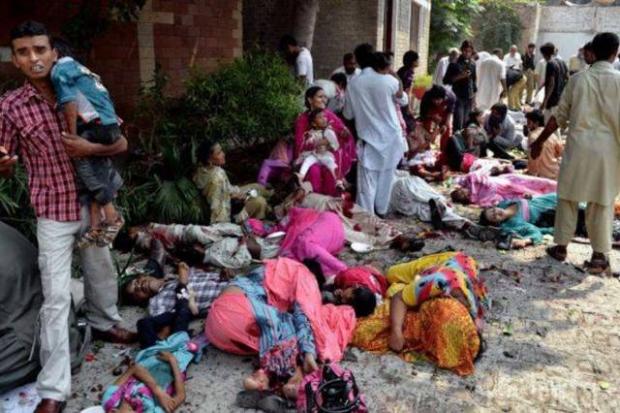ERITREA: Briefing in Parliament organised by Christian Solidarity Worldwide, to be chaired by Lord Alton of Liverpool, on Tuesday October 20th at 2.00pm in Committee Room 2A of the House of Lords. Opening Comments by lord Alton
The Current Situation
The human rights situation in Eritrea is one of the most deplorable in the world, yet one of the least reported. In a debate in the House in July on freedom of religion and belief I referred to the horrific beheading of Eritrean Christians by ISIS in Libya. Earlier in the same month I initiated a debate on the refugee crisis and said that “half a million more people are reported to be in Libya waiting to join the exodus. Some 46% of those making these perilous crossings originate from Eritrea or Syria, where we continue to witness the worst humanitarian catastrophe of our time.” I said that “Despotic governments and terrorist organisations have been the major immediate catalysts for conflict and mass migration, but aerial bombardment without a presence on the ground, a post-conflict development strategy, or a new attempt at creating peace will simply generate more refugees “
I highlighted the finding s of the United Nations commission of inquiry into human rights in Eritrea— and cited it as a classic example of the need to tackle the sources of migration. The United Nations found that, “systematic, widespread and gross human rights violations have been and are being committed in Eritrea under the authority of the Government”
The report also says: that it is wrong to describe the drivers fuelling mass migration as purely economic, and that:
“Eritreans are fleeing severe human rights violations in their country and are in need of international protection”.
Every month around 5,000 people leave Eritrea—more than 350,000 so far—around 10% of the entire population. The UN says that, during their journeys:
“Thousands of Eritreans are killed at sea while attempting to reach European shores. The practice of kidnapping migrating individuals, who are released on ransom after enduring horrible torture or killed, targets Eritreans in particular”.
Those Eritrean refugees who have been forced to return have then been arrested, detained and subjected to ill treatment and torture. So refugees from Eritrea, represent what we need to do both there and in other Countries generating mass movements of people —tackle the problem at source. Then we would turn the tables on mass migration, ending the tsunami of people. Not all people fleeing their countries are refugees; some are economic migrants. We will not properly address this crisis without some bigger-picture policies aimed at them, which must include the aim of helping Africa become peaceful and prosperous, and therefore more attractive as a permanent home. This is where our development policies interplay with mass migration.
But let me return to the Resolution passed in June 2014 by the United Nations Human Rights Council which created the Commission of Inquiry on Eritrea (CoIE). Only a handful of countries, with some of the worst human rights situations in the world, have been the focus of such an inquiry, one of the most serious steps the UN can take to hold a country to account.
When presenting the findings of this report to the HRC in June 2015, the Chair of the CoIE, Mike Smith, began by pointing out that since gaining de facto independence in 1991 “ultimate power in Eritrea has remained largely in the hands of one man and one party.” He added that “those in control often rule arbitrarily and act with impunity. A promising Eritrean Constitution adopted in 1997 has never been implemented. The Eritrean people have no say in governance and little control over many aspects of their own lives. A massive domestic surveillance network penetrates all levels of society, turning even family members against each other. Much of the population is subject to forced conscription and labour, sometimes in slave-like conditions. Tens of thousands have been imprisoned, often without charge and for indeterminate periods. Eritreans have never voted in a free and fair election.” As a result of this pervasive culture of impunity “hundreds of thousands have lost hope and are risking their lives to escape one of the world’s most oppressive regimes” in increasing numbers– and this unprecedented exodus from a country facing neither war nor famine has forced the international community to take note of the human rights crisis underway in this secretive nation.
The CoIE report identifies the Eritrean Armed Forces, the National Security Office, the Eritrean Police Forces; the Ministry of Information, the Ministry of Justice, the Ministry of Defence, the ruling party, the Office of the President; and the President himself as the main perpetrators of human rights violations. Most importantly, it states that some of these violations, and particularly extrajudicial executions, torture (including sexual torture), indefinite national service and forced labour, may constitute crimes against humanity. The report was adopted by consensus, and in July 2015, the HRC renewed the mandate of the CoIE, directing it to specifically investigate whether or not crimes against humanity have occurred or are underway in Eritrea.
In a parliamentary reply in June the Government confirmed to me that they were aware of the UN Commission’s findings that “widespread human rights violations are being committed in Eritrea and that these may constitute crimes against humanity. We have made clear to the Government of Eritrea that they must honour their international obligations and that improved respect for human rights is required to stem the flow of irregular migration.”
Asylum and Non-Refoulement
Risks faced by those who flee Eritrea include a government shoot-to-kill border policy; being held pending payment of a ransom by Bedouin people traffickers; being kidnapped from refugee camps in Sudan; dying in the Mediterranean or while crossing deserts, or execution by Daesh (Islamic State) in Libya. In addition, Eritrean women, girls and young boys face sexual violence. In spite of this, in 2012, the number of Eritreans registered as having fled to Europe was 6,400. In 2013, this increased to 14,580 and in 2014, leapt to 44,600. Around 10% of the Eritrean population is estimated to have fled the country, with Eritrean refugees constituting the second largest people group seeking refuge in Europe. UK Home office statistics state that in the first quarter of 2015 (Jan-Mar) a record number of Eritreans had applied for asylum – 3552.
However, in March the UK Government updated its advice to staff processing asylum applications from Eritrea. The new advice was based on a now discredited report from the Danish Government, which contrast starkly with the findings of the UN Special Rapporteur on Eritrea and the CoIE, and which has been publicly repudiated by some of its writers, who claim the final report is unsubstantiated and distorted and who have since resigned from the Danish Immigration Service. The guidance also relies on assurances from the Eritrean government, including that those who left Eritrea without securing the mandatory exit visa will face no negative consequences as long as they sign a letter of apology and pay the 2% diaspora tax, yet in March this year in response to a written parliamentary question Foreign Office Minister Mr Lidington stated the UK government had urged the Eritrean diaspora “to report to the police the use of coercion or other illicit means to collect the tax.” Home Office guidance also stated that the country’s indefinite military service had been reduced to between 18 months and 4 years, however, there is no clear evidence of this having occurred and news of this change is yet to be communicated it’s would-be beneficiaries, namely, the Eritrean people.
Following the new guidance the UK acceptance rate for asylum applications from Eritrea dropped from 73% between Jan-Mar 2015, to 34% between April and June. Many whose applications were refused are currently destitute; avenues of finance, employment and housing are closed off to them because they lack legal status.
The UK government is not alone in this. European Union (EU) officials recently outlined plans to deport Eritreans asylum seekers and are allocating development funding for the country as a means of stemming the refugee tide. However, Eritreans are not economic migrants; they are fleeing persecution and continue to have a well-founded fear of persecution if returned.
Recommendations for the UK Government
The UK Government should:
- Recognise that Eritrean refugees are not economic migrants, but are in reality fleeing a comprehensively repressive system and a “pervasive culture of impunity”;
- Update advice issued to Home Office staff managing asylum applications from Eritreans to reflect human rights concerns articulated in the CoIE report, which is based on detailed witness testimonies and outlines violations that “may amount to crimes against humanity;”
- Ensure the principle of non-refoulement is respected in all asylum applications to the United Kingdom
- Encourage the EU to re-evaluate its current policy on Eritrea in line with the findings of the CoIE, particularly with regard to non-refoulement;
- Work with EU partners to support the CoIE in implementing its mandate, in relaying its findings to the HRC, and in any further actions that may arise as a result of its future findings.
The tragedy of Eritrea – like that of Syria – must be tackled at source but, in the meantime, we must respond with humanity and a sense of justice and compassion for those caught up in this appalling situation.
——————————————————————————————————————————————————————————————————————————–
CALL FOR EVIDENCE ON THE TREATMENT OF PAKISTAN’S CHRISTIANS AND OTHER MINORITIES – NOVEMBER HEARINGS AT WESTMINSTER
All Party Parliamentary Group for International Freedom of Religion or Belief
Parliamentary Inquiry Call for Evidence
‘The Plight of Minority Religious or Belief Groups in Pakistan and as Refugees: Addressing Current UK & UNHCR Policy’
Pakistan represents one of the worst situations for minority religious or belief groups around the world and is rife with persecution on the grounds of religion or belief by both state and non-state actors. With the current policies and laws that Pakistani officials are advancing at both international and domestic levels, including the notorious blasphemy laws, the right of Pakistan’s citizens to freedom of religion or belief is looking unlikely to be upheld and protected in the near future. In addition to these concerns, the UK Home Office and UNHCR relying it seems on the recent UK Supreme Court Upper Tier case (AK and SK (Christians: risk) Pakistan CG [2014] UKUT 569 (IAC)), appears to have a policy that Pakistani religious minorities treatment is not severe enough to grant these individuals refugee status.
While freedom of religion or belief is a protected right under international law and is a clear basis for asylum in the 1951 Refugee Convention, as well as the UK’s current vulnerable persons relocation scheme, the key question remains in UK and international institutions whether all Pakistani minority religious or belief communities’ treatment in Pakistan or abroad ‘amounts to a real risk of persecution’.
In order to be able to look at the current UK and UNHCR policy regarding minority Pakistani religious or belief groups and its validity, the current conditions for such groups living in Pakistan and as refugees will need to be understood. The APPG on International Freedom of Religion or Belief is currently calling for submissions from charities, experts, lawyers, academics, faith-communities and individuals with personal experiences on their concerns, and suggestions on:
- What circumstances minority religious or belief groups living in Pakistan currently face; both vis-à-vis State and non-State actors
- What circumstances minority religious or belief groups having left Pakistan as asylum seekers currently face
- What the current UK and UNHCR policy regarding each minority Pakistani religious or belief community is, whether changes to current policy are required, how these policies and Upper Tier Tribunal Decisions are related, and how any changes should be done
We particularly welcome testimonies from individuals who have recently sought asylum in UK on the grounds of persecution for their faith or belief.
Each submission should be no longer than 3 pages, and clearly indicate the organisation and/or author of the statement. The submissions will contribute to a new report written by the APPG on the subject. The APPG can withhold the identities of authors of statements in the report, if a request for anonymity is clearly made in the submission.
Written submissions may result in individuals or organisations being invited to give oral testimonies at a formal hearing in the Houses of Parliament before selected parliamentarians on 10 November (9:00 – 10:30) and 11 November (10:00 – 12:00) in Portcullis House, Room R. The APPG holds the right to use or not to use submissions in its reporting.
Submissions should be sent to [email protected] . The deadline for submissions is 5.00pm, 3 November 2015.
——————————————————————————————————————————————————————————————————————————–
Evidence Taking Sessions With Pakistani Christians – Held in Bangkok, September 2015
see also:
And see:
Evidence Taking Sessions were kindly facilitated by Thai friends introduced to us by Jubilee Campaign. We took evidence from refugees and human rights advocates and also had meetings with UNHCR officials and diplomats.
Throughout our meetings with human rights advocates and escapees we heard a number of disturbing accounts of shocking and systematic persecution in Pakistan.
The collective death sentence which has been passed on Pakistan’s Christian community was underlined by the murder of Pakistan’s brave Minister for Minorities, Shahbaz Bhatti, and by the murder of the courageous Governor of the Punjab, Salman Taseer, who was killed after voicing his opposition to the use of Blasphemy Laws which have become a pretext for systematic and punitive persecution of Christians.
A country which is unable to protect such leading public figures is unlikely to be able to protect ordinary citizens. Sadly, Pakistan has become a breeding ground for barbarism and violence and from which many Christian families have tried to escape.
The accounts which we heard during our evidence sessions paint a picture of well founded fear and from which asylum represents the only prospect of safety and survival.
One witness recounted how his friend, Basil – a pastor’s son – was targeted by Islamists attempting to convert him. He reminded them that there should be no compulsion in requiring religious adherence. Their response was to attack his home in an arson attack. The fire burnt out his home and Basil, his wife and daughter, aged 18 months, were burnt alive.
Following their deaths the assailants turned their attention to his friend.
He was attacked and beaten. He reported this to the police – who then informed the assailants of the complaint. The assailants telephoned him and said that they would kill him. He, his wife, and little girl, fled the country and, after arriving in Bangkok, in 2014, applied for asylum. They have been told by UNHCR that they will be interviewed in 2018. It could then be a further two years before they are resettled.
This is an intolerable delay – and, meanwhile, he and his wife and child live in fear of being arrested and incarcerated in the detention facilities where they would be separated into segregated cells, sharing a space of 18 feet by 36 feet with up to 100 other prisoners.
Witnesses told us that escapees have devised a rota to enable half the inmates in these cells to sleep at night and the other half sleep by day: “This leaves enough space to stretch out straight, but not to turn over. We just lie side by side, including our children.”
Force fed poultry in battery farms are treated better and in more humane conditions than these – an analogy which was drawn by one witness.
A French Catholic priest with whom we spoke, and who has worked in the region for four decades, told us of one applicant who arrived in 2007 and who has still been given no final interview date.
The clergyman said that when he began working with detainees, over twenty years ago, UNHCR had two full time officials dealing with cases and “now there is only one and he calls into the Centre just twice a week and he has no time to deal with anyone in any depth.”
UNHCR officials admitted that there are “significant challenges” but also insisted that on most days someone from UNHCR is at the Detention Centre. Escapees countered by saying that this was “rarely an official, usually an interpreter unable to take any decisions.” UNHCR urgently needs to reassess its staffing levels and the appalling length of time which is being taken to deal with applications.
Another witness underlined the endemic nature of persecution: “It was not just directed at me. It is directed at every Christian.” Having run a pharmacy business for fifteen years, he said that Pakistan police had demanded bribes from him every month saying that if he “did not pay he would be accused of inciting hatred of Islam.” He has been living in Bangkok with his wife and five children in one room for two years – with his children unable to access any education – and living in constant fear of arrest. UNHCR have given him no details of when his case will be resolved. We were given an updated chronological account of documented cases which corroborate the assertion of escapees that they have a well founded fear of persecution – often persecution leading to death (as instanced in the bombings in Youhanabad and Lahore which claimed a further 16 lives).The document may be viewed at:
http://www.thereligionofpeace.com/pages/christianattacks.htm
A different witness described how his legs had been broken by his brothers after he became a Christian in Pakistan. After he refused to recant they hired two men to kill him. Because his sister gave him shelter they incinerated her home and she died in the fire. His wife abandoned him and he fled to Bangkok with his 12-year-old, traumatised, son.
Even in Thailand he has received four threatening phone calls from members of his family in Pakistan.
Meanwhile, he has been arrested on several occasions and although he made desperate phone calls to UNHCR – worried about his son being left alone – he claims that no-one responded or came to see him. He says that his emails to UNHCR remain unanswered. His case re-enforces the failure of both UNHCR and the Royal Thai Government to honour obligations and duties concerning the protection and treatment of children – both those living with parents whose claims are pending often in massively overcrowded conditions and deprived of education) and especially those incarcerated in the Detention Centre (where UNHCR officials told us that conditions are worse than those in Thai prisons).
A different witness also voiced criticism of UNHCR procedures, saying “there is a complete communications gap” and witnesses repeatedly expressed concern about translators and translation arrangements made by UNHCR.
We were encouraged, however, that UNHCR told us that they are reviewing the way in which translation is done.
Never-the-less, witnesses said they would feel more confident in the asylum process “if translators were Indian Urdu speakers, rather than Pakistanis, who sometimes distort answers, who are hostile to fleeing Christians” and who in one case even told one escapee “you should convert to Islam and go back.” Witnesses suggested that, at a minimum, UNHCR should record interviews and make available the recording to the escapee.
Several witnesses said that the waiting period listed for UNHCR interviews for applicants of other nationalities were considerably less than the waiting time for applicants of Pakistani Christian origin. They also claimed that the rejection rates they experience are very much higher than those of other groups.
In the interests of transparency and accountability we would urge UNHCR to publish data detailing the average waiting times and rejection rates for applicants from each of the 48 countries of origin with which they are dealing in Bangkok.
We also agree with the human rights organisation, Fortify Rights, who told us that the absence of legal representation for escapees prejudices the situation of refugees. We were dismayed by the conditions in which we were expected to speak to those held in the Detention Centre – shouting across caged barriers three or four feet apart – but legal representatives are denied any access.
UNHCR should do more to insist on the protection of escaping refugees; more to provide access to legal representation; more to develop documentation with the Royal Thai Government which will prevent asylum seekers being arrested or detained in the first instance; more to provide bail for those who are detained. They told us that legal representation which had been provided via the Jesuit Refugee Service had been terminated – we presume by the Thai authorities – and nothing has been put in its place.
More could also be done to provide better healthcare and medical support. One elderly lady we spoke to in the Detention centre suffers from diabetes and other medical conditions. She was arrested in August – has been given an interview date by UNHCR in 2017, has no lawyer and cannot pay the 50,000 Thai Bahts required for bail.
In addition to prioritising the most vulnerable, UNHCR also need to develop better relationships with the refugees and be seen to be the champions of their interests. We were concerned that UNHCR did not seem to accept the systematic and lethal nature of the persecution of Christians in Pakistan and have not collected accounts of torture and killings or documented family separation within the Detention Centre or prioritised the suffering of children and minors.
One witness, a tetraplegic man confined to a wheelchair and whose disability has considerably worsened since he arrived in 2014, said that UNHCR had not been responsive to his particular appeals for help. He told us that his illegal status leaves him in “limbo” and is denied medical support and assistance.
He argued that “UNHCR should work on short term relief as well as the long term issues”:
“Whenever we approach UNHCR for help – when the police arrive or when we need food or shelter – they simply say they cannot do anything.” He was given a perfunctory ten minute interview after he arrived in 2014 has been told his asylum claim will be considered after an interview now scheduled for 2018 and has been told he will then receive an answer by 2019 and may be resettled in 2020. His wife told us that no account seems to have been taken of his chronic health needs and she fears that if his muscle wasting disease is not properly treated and medical help made available, he may not survive the next five years.
The same witness reflected on the dangers facing Christians in Pakistan. He provided documented evidence and examples of the rape of Christian girls, many of whom are the victims of forced marriages. He said that when he was challenged by a Pakistani official about why he wanted to leave the country he replied “If you make our lives miserable we are left with no other option. We love our country.” He said that return was impossible as they would be jailed and on release would face lives of violent persecution.
Along with several other witnesses he said that Pakistani border officials had demanded bribes of $250 dollars per person from Christians leaving the country for destinations such as Malaysia, Thailand, or Sri Lanka – “knowing that it was not our intention to return.” Such sums of money are not available to many poorer Christian citizens.
We note that Indian newspapers recently reported that the Government of India suggested that Christians, Hindus, and Sikhs being persecuted for their religious faith might be given the right to settle in India.
Although this is a very sad reflection on the failure of the Government of Pakistan to provide protection against the persecution of its religious minorities, and the complete absence of religious toleration and respect for minorities, an Indian refuge may offer Pakistan’s persecuted citizens some future prospect of safety and security and we hope that UNHCR are exploring this option with the Governments of both countries.
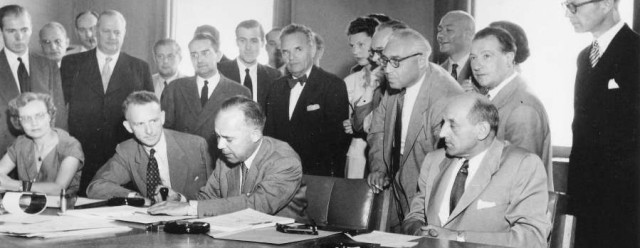
The 1951 Convention relating to the Status of Refugees, being signed here, is the key legal document in defining who is a refugee, their rights and the legal obligations of states: high ideals but rhetoric must match reality and words must be matched by deeds.
UNHCR says:
“ [its] mandate is to provide, on a non-political and humanitarian basis, international protection to refugees and to seek permanent solutions for them.”
We have great respect for the work undertaken by UNHCR in many parts of the world and were genuinely disappointed to hear so much criticism. However, we were also surprised that officials compared the situation in Pakistan to that of victims of gun crime in the United States and emphasised cases of fraud rather than accepting the prima facie case of well founded fear of persecution in Pakistan. We accept, as they put it, that they are not “Hotel California” or “ a golden ticket” but do not believe that conditions in Carolina are comparable, as they suggested, with those in Pakistan.
We were grateful that they offered to meet with the representatives with whom we met and hope that this will lead to an improvement in understanding and procedures.
Also see:
http://www.justice.gov/sites/default/files/eoir/legacy/2014/03/04/PAK104258.E.pdf
—————————————————————————————————————-
Parliamentary Replies from the British government on the Plight Of Pakistani Escapees
Baroness Anelay of St Johns, the Foreign and Commonwealth Office, has provided the following answer to your written parliamentary question (HL2256):
Question:
To ask Her Majesty’s Government what is their current assessment of the number of Pakistani Christians who have fled to Thailand, Malaysia and Sri Lanka through fear of persecution. (HL2256)
Tabled on: 16 September 2015
Answer:
Baroness Anelay of St Johns:
We gather information on this issue from external sources and have not conducted our own assessment of the numbers involved.
We continue to urge the Government of Pakistan to fulfil the human rights obligations set out in the Constitution of Pakistan and international law, including those relating to religious minorities.
Date and time of answer: 29 Sep 2015 at 17:41.
Baroness Anelay of St Johns, the Foreign and Commonwealth Office, has provided the following answer to your written parliamentary question (HL2257):
Question:
To ask Her Majesty’s Government what assessment they have made of the conditions in the detention centres where Pakistani Christians are detained in Bangkok, and whether the inmates include babies, children, lactating women and the infirm; what international obligations exist in regard to the detention of children in such circumstances; whether they have made representations to the UNHCR and the government of Thailand about those conditions; and if so, what response they have received. (HL2257)
Tabled on: 16 September 2015
Answer:
Baroness Anelay of St Johns:
We have not conducted a specific assessment of the detention centres where Pakistani Christians are detained. However, consular officials visit prisons and Immigration Detention Centres in Bangkok regularly to carry out their consular duties with respect to British citizens. Their assessment is that conditions are generally poor and they are aware that women and children are also detained.
A number of international obligations exist in regard to the detention of children including the International Covenant on Civil and Political Rights, the Convention Against Torture and the Convention on the Rights of the Child. We have raised our concerns with the Thai Minister for Justice and senior officials. The Thai authorities have shown themselves willing to cooperate on work to improve prison conditions and we are ready to share our experience and expertise. We maintain a regular dialogue with many senior prison officials to address specific concerns.
We meet the UN High Commissioner for Refugees regularly to discuss how we can assist their work, including around conditions of detention.
Date and time of answer: 29 Sep 2015 at 17:41.
Baroness Anelay of St Johns, the Foreign and Commonwealth Office, has provided the following answer to your written parliamentary question (HL2258):
Question:
To ask Her Majesty’s Government what assessment they have made of how the conditions in detention centres where Pakistani Christians are detained in Bangkok compare with the conditions in prisons in Thailand. (HL2258)
Tabled on: 16 September 2015
Answer:
Baroness Anelay of St Johns:
We have not conducted a specific assessment of the detention centres where Pakistani Christians are detained. However, consular officials visit prisons and Immigration Detention Centres in Bangkok regularly to carry out their consular duties with respect to British citizens. Their assessment is that conditions in prisons and detention centres are generally poor.
Date and time of answer: 29 Sep 2015 at 17:36.
Baroness Anelay of St Johns, the Foreign and Commonwealth Office, has provided the following answer to your written parliamentary question (HL2259):
Question:
To ask Her Majesty’s Government what assistance they have been able to provide for refugees fleeing persecution in Pakistan in resolving their applications for asylum; and what is their estimate of the average time likely to elapse between an applicant lodging a claim for asylum in Bangkok and being resettled. (HL2259)
Tabled on: 16 September 2015
Answer:
Baroness Anelay of St Johns:
We work closely with the UN High Commissioner for Refugees (UNHCR) in Thailand on a wide range of refugee issues. We do not intervene in specific cases but aim to support the rights of those fleeing persecution as a whole. From our conversations with UNHCR we understand that the time taken to assess asylum applications in Thailand varies and can be anything from a few months to a couple of years, depending on the individual circumstances of each case. We understand the majority of applicants from Pakistan who seek refugee status are successful and they are then eligible for resettlement. The time taken for resettlement varies as it is dependent on each specific situation.
Date and time of answer: 29 Sep 2015 at 17:36.
Baroness Anelay of St Johns, the Foreign and Commonwealth Office, has provided the following answer to your written parliamentary question (HL2260):
Question:
To ask Her Majesty’s Government whether they plan to work with the British Council to examine ways of assisting the children of Pakistani refugees to receive schooling and educational opportunities while their asylum cases are being considered. (HL2260)
Tabled on: 16 September 2015
Answer:
Baroness Anelay of St Johns:
The main problem refugees face in accessing appropriate opportunities for education in Thailand is the lack of proper documentation explaining their status. Thailand is not a signatory to the 1951 UN Convention on refugees, therefore any documents provided by the UN High Commissioner for Refugees (UNHCR) are not necessarily accepted. We are working with UNHCR to support their requests to the Thai government to develop a form of documentation for refugees. This would allow refugees to access appropriate schooling and other opportunities. We work closely with the British Council in Thailand and have discussed this issue with them.
Date and time of answer: 29 Sep 2015 at 17:35.
Baroness Anelay of St Johns, the Foreign and Commonwealth Office, has provided the following answer to your written parliamentary question (HL2261):
Question:
To ask Her Majesty’s Government what assessment they have made of the risks of those Pakistani refugees who are living without legal status while their asylum claims are being assessed in Bangkok falling victim to trafficking and exploitation. (HL2261)
Tabled on: 16 September 2015
Answer:
Baroness Anelay of St Johns:
Thailand is not a signatory to the 1951 UN Convention on refugees and as such those people claiming asylum through the UN High Commissioner for Refugees (UNHCR) in Thailand have no formal legal status. Once any form of legal immigration status expires they are then deemed to be illegally in the country. Many are detained in Immigration Detention Centres awaiting deportation, or resettlement by the UNHCR should they qualify. Others live a vulnerable life as urban refugees open to trafficking and exploitation.
We continue to work closely with the UNHCR in Thailand on a wide range of refugee issues. We are in contact with UNHCR to support their requests to the Thai government to develop a form of documentation for refugees, including those of Pakistani Christian origin, to assist their legal status in Thailand.
Date and time of answer: 29 Sep 2015 at 12:59.
——————————————————————————————————————————————————————————————————————————–
Lord Bates, the Home Office, has provided the following answer to your written parliamentary question (HL2312):
Question:
To ask Her Majesty’s Government what assessment they have made of the findings of the report commissioned by the British Pakistan Christian Association, entitled Education, Human Rights Violations in Pakistan and the Scandal Involving UNHRC and Asylum Seekers in Thailand; and whether, in the light of this report, they plan to review the risk of the persecution of Christians in Pakistan and update their guidance document Pakistan: Christians and Christian Converts. (HL2312)
Tabled on: 17 September 2015
Answer:
Lord Bates:
The Home Office will be considering the report commissioned by the British Pakistani Christian Association alongside a range of other material to make a full assessment of the situation of Christians in Pakistan, and will revise its country information and guidance if necessary.
The Home Office considers that the treatment of asylum seekers in Thailand is primarily a matter for the Thai authorities.
Date and time of answer: 05 Oct 2015 at 17:26.

